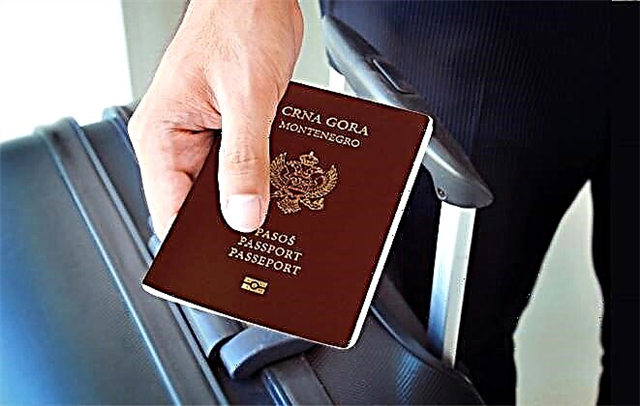The legal status of any person is determined by rights, duties, freedoms and guarantees. They are determined by the state. But only those who are part of the state system get access to them. This affiliation is expressed in the status of a citizen. But what rights and obligations apply to persons who do not have Russian citizenship?
Federal Laws Regulating the Legal Status of Foreign Persons and Stateless Persons
In the Russian Federation, the status of migrants is determined by 4 legislative acts:
- Constitution of the Russian Federation (part 3, article 62);
- Federal Law "On the Legal Status of Foreign Citizens in the Russian Federation" as amended in 2002;
- Federal Law "On Citizenship of the Russian Federation" (31.05.2002);
- Federal Law "On Refugees".
Referring to the aforementioned normative acts, we can say that a foreign citizen (IG) is, first of all, an individual (FL). It did not receive Russian citizenship, but it has documentary evidence of its belonging to another state.
A stateless person, based on the terminology adopted as a basis, is a FL who does not have RF citizenship and cannot prove that he belongs to another foreign state.
In the text, both categories will be described under the same wording - IG.
Legal status
Migrants in Russia have rights and obligations almost equal to the citizens of the country (this is determined by law). They are equally subject to criminal liability. In rare cases, deportation from the territory of the Russian Federation is chosen as a preventive measure.

IS rights are quite extensive and form a long list:
- Freedom of movement in territorial entities with the presentation of documents upon request;
- Free disposal of their abilities;
- Choice of type of activity and profession;
- Doing business for financial gain;
- Crossing the Russian border in both directions an arbitrary number of times.
The responsibilities of the listed categories of persons are identical to those assigned to Russian citizens, but with some amendments. The list looks like this:
- Not to violate the established regimes of residence in the territorial district and country;
- Avoid activities that harm the interests of the Russian Federation and violate its laws;
- Independently take care of the timely issuance of a visa and its extension;
- Adhere to the accepted rules of movement around the country;
- Complete the registration process within 3 days after crossing the Russian border;
- Leave the country on time.
You May Also Like
Failure to comply with the listed obligations leads to criminal and administrative liability. Among the most common measures of influence:
- Imposition of a fine;
- Administrative expulsion;
- Deportation;
- Deprivation of liberty (from several days to years).
There are also a number of prohibitions for IS that determine their legal status. In no case will they be allowed to:
- Work in municipal government departments;
- Inclusion in the crew of a ship carrying out military service;
- Command of an aircraft belonging to the "Civil Aviation" category;
- Work, maintenance and location on the territory of objects responsible for state security. This also includes employment at enterprises responsible for state security.
There are a number of rights and obligations regarding military service:
- IS is not subject to conscription;
- IS has the right to enter into a military service contract at will, but only as a civilian.

The electoral rights of FLs without Russian citizenship are subject to restrictions. They cannot choose and be elected themselves:
- State power structures of federal significance;
- To government bodies (subjects of the Russian Federation are taken into account).
Referenda of any level are also banned.
Modes of stay: description and classification
Legal regimes regulate issues such as:
- The period of stay in the state on a legal basis;
- Number of rights and freedoms;
- The possibility of obtaining citizenship.
At the legislative level, 5 legal regimes have been established.
You May Also Like
Temporary stay
This category includes foreign citizens who:
- We entered the territory of Russia on a visa;
- We took advantage of the right to visa-free entry.
To cross the border, such persons fill out a migration card, which will be required to timely leave the country.
Temporary stay does not imply:
- Obtaining a residence permit;
- Registration of RVP.
The period of stay in the country is determined by 2 factors:
- The interval specified in the visa (in the case of its preliminary registration for a trip to Russia);
- According to the rules of visa-free entry - 3 months of direct stay in the country for half a year.
There are also exceptions to the last point. These include work activities. In such a situation, the IG can stay in the country during the term of the employment contract and the work permit.

After the end of the permitted period of stay in the country, the foreigner has 3 options:
- Leave Russia;
- Extend the period of temporary stay;
- Submit papers for registration of the RVP.
RVP (temporary residence permit)
Foreign citizens who managed to obtain such a permit have the right to reside in the country for 36 months. Then they have the right to apply for a residence permit.
It is important to keep in mind that the number of permits you open per year is limited. The migration authorities are given a state quota for them. This year it amounted to about 90,000 RWP.
At the legislative level, there are also cases of issuing permits outside the quota. The privileged category includes:
- Parents who have lost the ability to work and have children - citizens of the Russian Federation;
- Entrepreneurs planning to invest in the Russian economy;
- Husband / wife of a Russian citizen and so on.
RVP holders should take into account that they are "tied" to the region of residence. Leaving it without the permission of the migration services is prohibited. But within this territory, they can get jobs and lead an ordinary life.

Foreigners with a temporary residence permit can travel outside the Russian Federation and come back 3 years in advance any number of times. There is no need to warn the FMS about this.
Residence permit (permanent residence)
This document is issued for a period of 5 years. It can only be obtained by migrants who meet a certain condition - who have lived with a temporary residence permit in the country for at least 12 months.
It is important that the residence permit is subject to renewal. This can be done several times at the request of the migrant.
The holder of a residence permit must officially notify the FMS of his place of residence every year. In doing so, he can:
- Enjoy social benefits;
- Freely apply for a job;
- Change your place of residence and region;
- Officially invite friends and relatives to the country;
- Take part in elections (municipal).
If after 5 years the IG wants to stay in Russia, then it can make an attempt to apply for citizenship.
Diplomatic immunity
The term itself is widely used in international law and denotes the impossibility of applying the laws of a country to a foreigner staying in it.
IGs related to the work of a diplomatic mission have diplomatic immunity.
Refugees
This status is assigned to two categories of visitors:
- Foreign citizens;
- Persons - former citizens of the Russian Federation.

There is only one reason to acquire the legal status of a refugee - fears for their lives. They can arise as a result of persecution for various reasons. Most often these are:
- Religious;
- Political;
- Racial.
The holder of the "Refugee" status receives a number of rights, benefits and opportunities:
- Financial and in-kind assistance;
- Housing provision;
- Organized hot meals at special points;
- Carrying out economic activities and so on;
- Free movement within the country and abroad.
Foreign legal entities (FLE) in the Russian Federation: design features and responsibilities
IS can not only be in the country as an individual, but also be present as a legal entity with its own rights and obligations.
The actions of the ILE are governed by two categories of regulations:
- Internal Russian laws;
- International norms and agreements in force in the Russian Federation.
International law gives the ILE a certain advantage over Russian companies.
Russian legislation does not have separate laws and articles related to the work of the ILE. In some market segments a special taxation system is defined for them. For example, it affects the securities market.
Any JUL must, after its creation:
- Register with the Federal Tax Service;
- Get your own number in the State Register of Taxpayers.
After that, the company begins to be subject to the obligation to pay taxes and provide timely reporting. At the same time, the legal entity also gets the opportunity to engage in any legal types of entrepreneurial activity.
A slightly different situation is when the activity is carried out not by the company itself, but by its branches and representative offices. They must be carried out through the accreditation procedure in the Russian tax authorities.

This is done in two stages:
- Accreditation of the legal entity itself;
- Branch accreditation.
Referring to all of the above, we can say that in all matters related to its activities, the ILE should be guided by the current laws of the Russian Federation.
An indispensable condition for the presence of a foreign citizen and foreign legal entity on the territory of Russia is their registration. It is done in the first case. during the first 3 days, and in the second - 30 days.
It can only be produced personally. For this, an application is submitted to the territorial subdivision of the federal executive body in charge of internal affairs. Otherwise, the migrant will be deported, and the activities of the ILE will be terminated.











